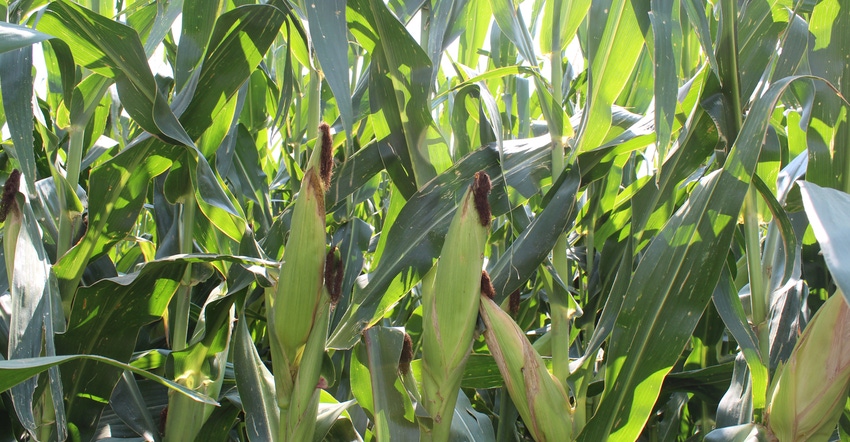October 7, 2021

Fall is the ideal time to plant trees in Kansas. The USDA Natural Resources Conservation Service reminds farmers that trees can not only benefit their crop- and pastureland by reducing soil and water runoff, but can also benefit their farmsteads.
The cooling effect of a young, healthy tree is the same as having 10 air conditioners operating 20 hours every day, according to the NRCS. A native deciduous tree planted in the right location can keep a house or barn temperature regulated.
To maximize energy savings, NRCS recommends planting large deciduous trees to the east, west, and northwest of a building. This can reduce air conditioning needs by 30% — and reduce heating needs by 20% to 50%, depending on location.
To learn more, contact a local USDA Service Center or visit nrcs.usda.gov.
California E85 potential
The Kansas Corn Commission, along with the corn checkoff programs from Missouri and Nebraska, is leveraging resources to provide California fuel retailers up to $1.25 million over the next year to increase availability of E85 (an 85% ethanol blend). California is by far the strongest E85 market in the country, accounting for more than 40 million gallons in 2020, and is on track to reach 50 million gallons in 2021.The state has 39.5 million people, but trails both Iowa and Minnesota in total E85 stations.
“Our ethanol will continue to be a low-carbon, high-octane fuel that offers Californians immediate benefits,” says Kent Moore, Kansas Corn Commission chairman. “Flex-fuel vehicles using cleaner-burning and more affordable E85 can be widely deployed there to meet the state’s goals quicker than any other technology.”
California’s battery electric vehicle tally at the end of 2020 was close to 370,000 — only 1.3% of all light-duty vehicles on the road. For comparison, more than 1.1 million drivers own flex-fuel vehicles. The state still has more than 25 million other cars on the road using non-flex fuel: internal combustion engines. To learn more, visit kscorn.com.
KSU Swine Day set
Kansas State University’s annual Swine Day is planned for 8 a.m. to 4 p.m. Nov. 18. It will feature a technology trade show and be held at the K-State Alumni Center, 1720 Anderson Ave.
Rodger Main, Iowa State University Veterinary Diagnostic Laboratory director, will speak on the new national Swine Health Improvement Plan. Jon De Jong, Pipestone Nutrition president, will also speak.
The registration fee is $25 per person and includes lunch, if paid by Nov. 10. The registration fee will be $50 after that date or at the door. Students may attend for free if they register by Nov. 10. Register online at ksuswine.org.
Conservation easements
NRCS reports it has now enrolled more than 5 million acres in conservation easement programs over the past 28 years. That’s enough acres to fill the state of New Jersey.
Conservation easements are offered through the Agricultural Conservation Easement Program (ACEP), which helps landowners, land trusts and other entities protect, restore and enhance wetlands, grasslands and working farms and ranches through conservation easements. To learn more, visit a local NRCS state office, or contact a local USDA Service Center.
To learn more, visit nrcs.usda.gov.
New USCP appointees
The USDA announced the appointment Sept. 17 of four members to serve on the United Sorghum Checkoff Program’s board of directors. All four appointees will serve three-year terms starting in December and ending December 2024.
The sorghum farmers appointed include: Macey A. Mueller, Halstead, Kan., Kansas member; Kimberly A. Baldwin, McPherson, Kan., Kansas member; Kevin D. Pshigoda, Perryton, Texas, Texas member; and Adam K. Schindler, Reliance, S.D., at-large member.
The USCP 13-member board includes nine sorghum farmers representing the three states with the largest sorghum production — Kansas, Oklahoma and Texas — and four at-large national representatives. To learn more, visit sorghumcheckoff.com.
You May Also Like




